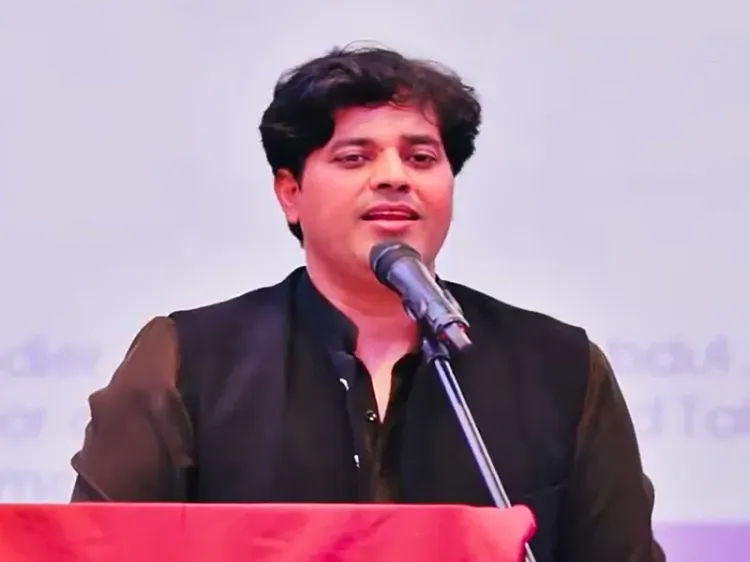Gujarat High Court Denies Congress MP Imran Pratapgarhi's Request to Dismiss FIR

Synopsis
Key Takeaways
- Gujarat High Court denied Imran Pratapgarhi's plea.
- FIR relates to social harmony disruption claims.
- Pratapgarhi required to clarify poem's authorship.
- Legal accountability emphasized for parliamentarians.
- Investigation into the matter is ongoing.
Ahmedabad, Jan 18 (NationPress) The Gujarat High Court has denied Congress Rajya Sabha MP and poet Imran Pratapgarhi's appeal to dismiss an FIR lodged against him for allegedly disrupting social harmony. The court highlighted that Pratapgarhi, as a Member of Parliament, has a duty to honor the legal process.
The incident traces back to January 3, 2025, when a complaint was lodged at Jamnagar police station by an advocate’s clerk. The complaint accused Pratapgarhi of inciting unrest through a poem featured in a video he posted on Instagram, which allegedly harmed social peace.
Pratapgarhi contested the FIR in the Gujarat High Court, seeking the annulment of the complaint without facing any negative repercussions while the issue was under deliberation.
In its ruling, the High Court stated that as a legislator, Pratapgarhi must be accountable and adhere to the legal framework. The court also instructed him to provide an affidavit detailing the origins of the poem used in the video.
Pratapgarhi was required to clarify whether he authored the poem or if it was sourced from another writer, and if so, to identify the author.
During the court sessions, Pratapgarhi asserted that the poem in question was authored by esteemed poets Faiz Ahmed Faiz or Habib Jalib.
He indicated that he discovered the poem through online platforms, including forums and chat rooms, but was unable to specify a precise source. Pratapgarhi provided screenshots from an AI tool (GPT chat) to substantiate his assertions. He contended that the poem, which advocates love and non-violence, was benign and did not qualify as a criminal act.
In contrast, the prosecution maintained that as a parliamentarian, Pratapgarhi bore the responsibility to act judiciously and refrain from provoking public unrest via social media.
The police had served notice to Pratapgarhi on January 4, requesting his appearance on January 11, yet he did not cooperate with the investigation. The case remains in its preliminary stages, with ongoing investigations.
The court underscored that Pratapgarhi's actions could not be justified merely by his status as a public figure. His noncompliance in appearing before authorities and his ambiguity regarding the poem's origin were significant elements in the court's judgment.
Ultimately, the High Court rejected Pratapgarhi's plea, reiterating that lawmakers must abide by the law and act responsibly.
This case is still evolving as investigations continue, with the court's ruling emphasizing the necessity for accountability among elected officials.









